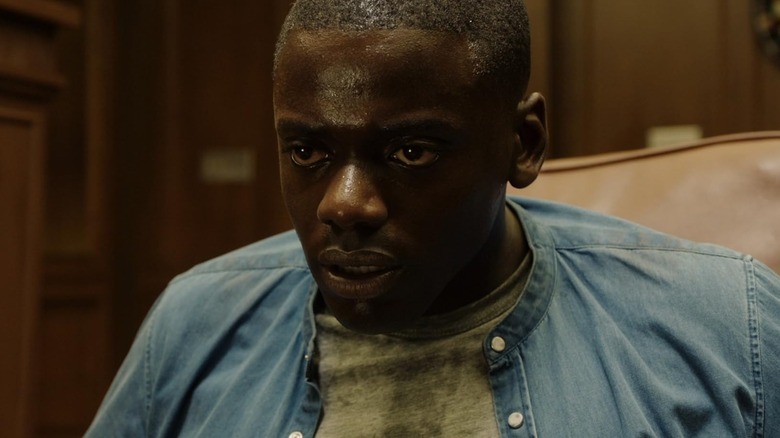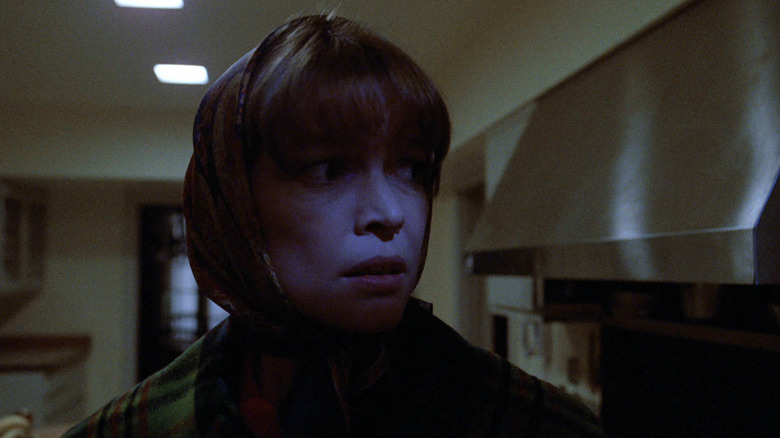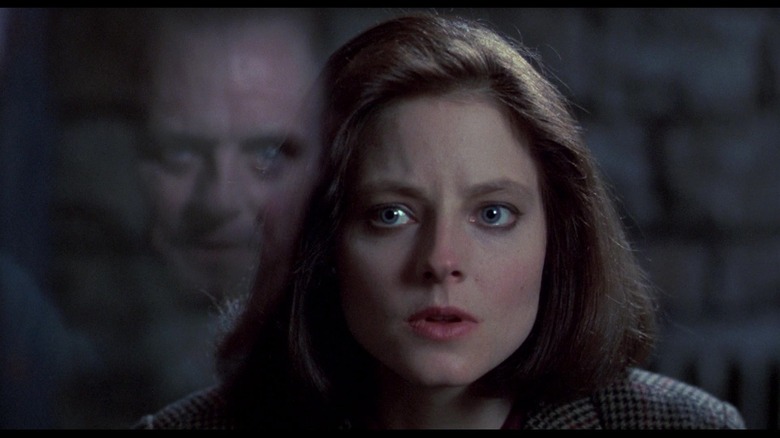Only Seven Horror Movies Have Been Nominated For Best Picture Oscars (And Only One Has Won)
Although horror has gradually earned more respect over the decades, there can hardly be a more maligned genre in cinema. On top of cuts, bans, and hand-wringing about what effect it might have on impressionable young minds, scary movies regularly have sniffy critics to deal with. An ambitious horror filmmaker's chances of their work receiving recognition from the Academy of Motion Picture Arts and Sciences are pretty slim, too: In nearly a century of the Oscars, only seven horror films have received a Best Picture nod ("The Exorcist," "Jaws," "The Silence of the Lambs," "The Sixth Sense," "Black Swan," "Get Out," and "The Substance"), with only "The Silence of the Lambs" winning.
I should perhaps pause to note that the Academy is historically averse to honoring genre flicks overall, generally favoring serious dramas, biopics, and historical epics; science-fiction films, action movies, and superhero blockbusters also tend to get short shrift whenever the Oscars roll around. But over the years, the roll call of landmark horror films that failed to receive a nod for the top prize is quite astonishing: "Frankenstein," "Psycho," "Rosemary's Baby," "Night of the Living Dead," "The Texas Chain Saw Massacre," "Carrie," "The Shining," "The Fly," and "Misery," to name just a few.
Of course, the counter-argument is: Who cares what the Academy thinks? A great movie is a great movie regardless of awards, and the Oscars has always been a little off the pulse, routinely championing mediocrity and awards-baiting snoozefests over many truly original, challenging, and groundbreaking films each year. Nevertheless, winning a shiny golden fella is still regarded as the highest honor a filmmaker can receive, so let's take a closer look at those lucky horror movies that at least had a sniff at the Best Picture gong (and the one that actually took it home).
The six horror films that were nominated for (but didn't win) Best Picture
It wasn't until the 46th Academy Awards in 1974 that a horror movie was up for Best Picture, and the honor fell to William Friedkin's "The Exorcist." Despite (or perhaps thanks to) the controversy surrounding its terrifying content and outrage from religious groups, the movie was a box office smash-hit that also earned Friedkin a Best Director nod. Sadly, it lost out on Best Picture to George Roy Hill's perfectly inoffensive "The Sting."
Friedkin's film was quickly followed by the next entry, "Jaws." Steven Spielberg's original summer blockbuster overcame a troubled shoot to change the course of cinema history, and it was also a supremely confident piece of filmmaking that deservedly received a Best Picture nomination. Ultimately, though, nobody could really argue with the eventual winner, "One Flew Over the Cuckoo's Nest."
It took another 18 years for horror to register another Oscar nomination in the top category, but we'll come back to that in a minute. Up next at bat after that was M. Night Shyamalan's "The Sixth Sense," which became the second-highest-grossing film of 1999 behind "Star Wars: Episode I — The Phantom Menace." It lost out on Best Picture to the problematic "American Beauty."
Next up was Darren Aronofsky's overhyped psychological freakout "Black Swan," but even that would've been a more worthy winner than the mundane "The King's Speech." After that, Jordan Peele's "Get Out" was a popular and deserving nominee at the 90th Academy Awards, pipped at the finishing line by "The Shape of Water." Finally, I was delighted that Coralie Fargeat's gloopy "The Substance" received a nod. It didn't stand a chance of beating "Anora," but it was encouraging that such a wild horror movie was at least in the conversation.
The Silence of the Lambs not only won, it won big
That brings us to the only horror movie to ever win Best Picture: "The Silence of the Lambs." It's hard to overstate how much hype there was around Jonathan Demme's engrossing adaptation of Thomas Harris's superior page-turner at the time. The film transcended its horror status to become a pop cultural phenomenon, make a certain doctor with a taste for human flesh an instant icon, and usher in the '90s boom of serial killer flicks.
Come Oscar night, LGBTQ+ groups picketed the ceremony in protest about the homophobic depiction of characters in both "The Silence of the Lambs" and another Best Picture nominee, "JFK." Undeterred, the buzz continued inside the venue as host Billy Crystal was wheeled onstage wearing a Hannibal Lecter face mask. The film eventually triumphed over Oliver Stone's epic conspiracy thriller, "Beauty and the Beast," "Bugsy," and "The Prince of Tides," making history by winning the top prize.
The glory didn't stop there. Jonathan Demme took Best Director, Anthony Hopkins received Best Actor for around 16 minutes of screen time, Jodie Foster claimed Best Actress, and Ted Tally notched another victory for Best Adapted Screenplay. The movie also got nominations for Best Film Editing and Best Sound, but the wins meant that "The Silence of the Lambs" entered the history books for becoming only the third film to ever take home the "Big Five" Oscars (after "It Happened One Night" and "One Flew Over the Cuckoo's Nest"). Out of the nominees, it was a deserving winner, not only in terms of quality but lasting cultural impact. Horror fans might need to wait a long time before such a feat is achieved again.


